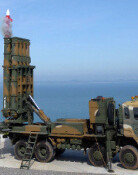Conditions of OPCON transfer to be met in 2025 at the soonest, US says
Conditions of OPCON transfer to be met in 2025 at the soonest, US says
Posted February. 18, 2021 07:29,
Updated February. 18, 2021 07:29
It was reported that the Biden administration believes the key conditions of operational control (OPCON) transfer will be met in 2025 at the soonest and some of the essential conditions, such as response capabilities to North Korea’s nuclear weapons and missiles, will be satisfied by 2028. This is the first time that a specific judgment of the U.S.’ OPCON transfer timing was reported. As it means that the transfer conditions may be difficult not only under the Moon administration, whose term is to end in May 2022, but also the next administration, the direction of future discussions between South Korea and the U.S. is garnering attention.
According to a source in the United States Forces Korea on Wednesday, the U.S. Department of Defense and the U.S. Forces expect the first – the South Korean military’s capabilities to lead the joint defense – and the second – response capabilities to North Korea’s nuclear weapons and missiles – conditions among the three major conditions for OPCON transfer agreed between the two countries in 2014 to be met in 2025. This means that it may take over four years for the Future ROK-U.S. Alliance Command led by the South Korean military to build war capabilities comparable to the current ROK-U.S. Combined Forces Command. “The U.S. believes that even 2025 is early to meet wartime requirements for ammo, ensure compatibility between the crypto-systems of South Korea and the U.S., and build an identification of friend or foe system,” said a source.
In particular, the U.S. expects some of the core capabilities of the South Korean military’s initial response capabilities to North Korea’s nuclear and missile advancement to be built in 2028. “The U.S. believes that building capabilities to hold back the North’s series of attacks in an emergency before the additional support from the U.S. arrives is the most critical albeit it may take some time,” said another source.
Sang-Ho Yun ysh1005@donga.com







